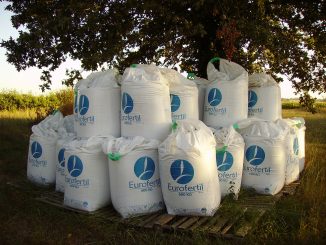 The UK parliament’s Environment, Food and Rural Affairs committee (EFRA) this week published its findings on the provision of rural broadband, warning that until there is completely reliable broadband coverage in the UK, “…there will be those who, through lack of online access, are disadvantaged through no fault of their own.” The committee heard that at present one in 10 CAP applicants either do not have a computer or do not use broadband.
The UK parliament’s Environment, Food and Rural Affairs committee (EFRA) this week published its findings on the provision of rural broadband, warning that until there is completely reliable broadband coverage in the UK, “…there will be those who, through lack of online access, are disadvantaged through no fault of their own.” The committee heard that at present one in 10 CAP applicants either do not have a computer or do not use broadband.
Last year, the Rural Payments Agency (RPA) wrote to 18,000 farmers in England who would no longer qualify for Pillar I area-based support, leaving some 90,000 registrations that need to be completed by the May 15 deadline. With fewer than 100 days to go, the National Farmers’ Union (NFU) is reporting that just over 22,500 farm businesses have registered. This means that registration levels will need to top 700 farms/day to meet the deadline requirements. The union has been emailing and texting members to remind them of the need to register.
The RPA has set up 50 help centres across England, where farmers can make an appointment and get help with registration. To register, applicants must first look out their Single Payments Scheme details, prepare a password and have a working email address before telephoning the RPA helpline on 03000 200 301. Security clearance for callers will be based on questions relating to previous SPS claims, at which point applicants will get a 12-hour time slot to complete their registration online.
EFRA noted that RPA had made efforts to smooth the transition, with the new system now designed to function over connection speeds “…as low as 0.5MB/second.” The software will also autosave, keeping user details as they are entered, to help those with unreliable broadband coverage. The committee urged RPA to make a contingency plan in case the software did not keep up with service demand and to help users having trouble accessing the service effectively. EFRA secured an assurance from RPA boss Mark Grimshaw that if necessary the help centres could be open “…24/7 between the end of January and 15 May.” As of early December, just 41 appointments had been made.
The committee recommended that access to support for online-only services like this should be available in “…subsequent months and years,” to allow for training and the vagaries of the farming calendar. Other agricultural services which are only available online include the British Cattle Movement Service and the weekly collection of poultry data. EFRA is particularly concerned to secure broadband services for the 5% of premises with no access, as a priority over upgrading access for existing users.
- UK food bank users symptomatic of an isolated society
- Land Workers’ Alliance: small scale & family farming in UK
- Scots count cost of Westminster’s bodged CAP deal
- Brexit boobytrap for UK government
- Who is writing UK food policy?
- Rural Development in Wales Targets High Ground
- A growing interest in the UK for saving seed
- French mobilise against agri-industrialiation & TTIP/CETA
- Nourish Scotland on the Common Wealth of Food
- Manage grassland as if our lives depend on it
- Five-hectare payment threshold excludes one in six English farmers
- Where does your meat come from?
- UK reviving land settlement and local food production
- TTIP agenda threatens good intentions for UK local food
- UK agroecology centre taps into water research





